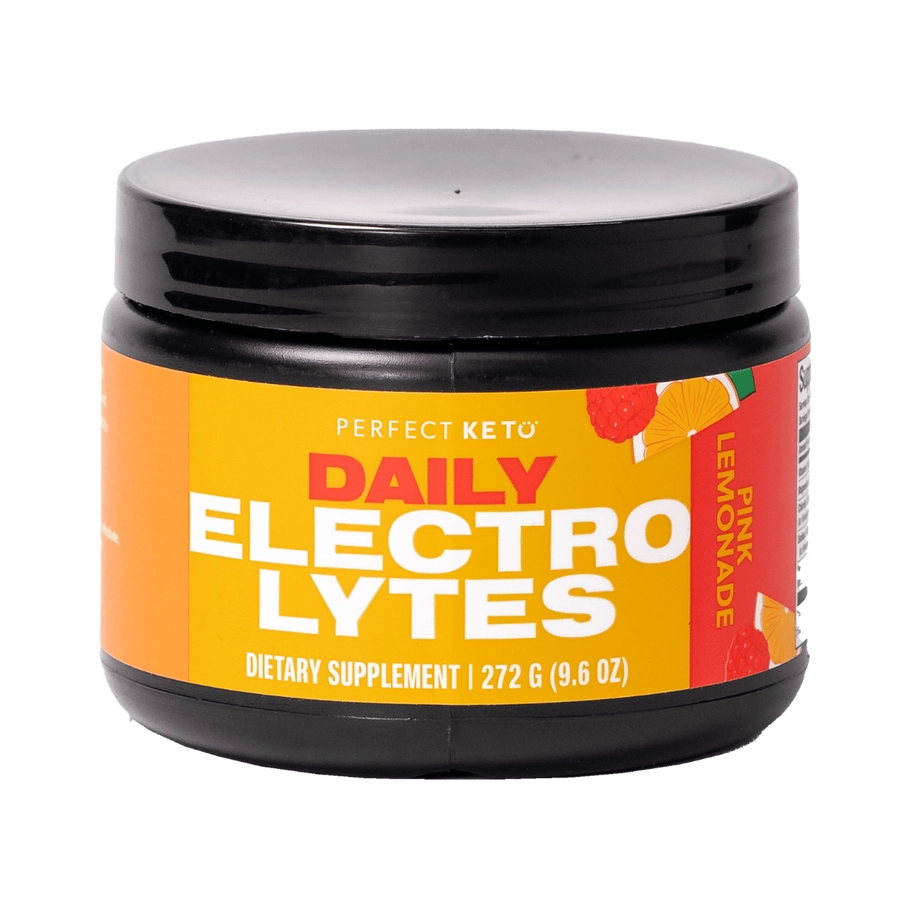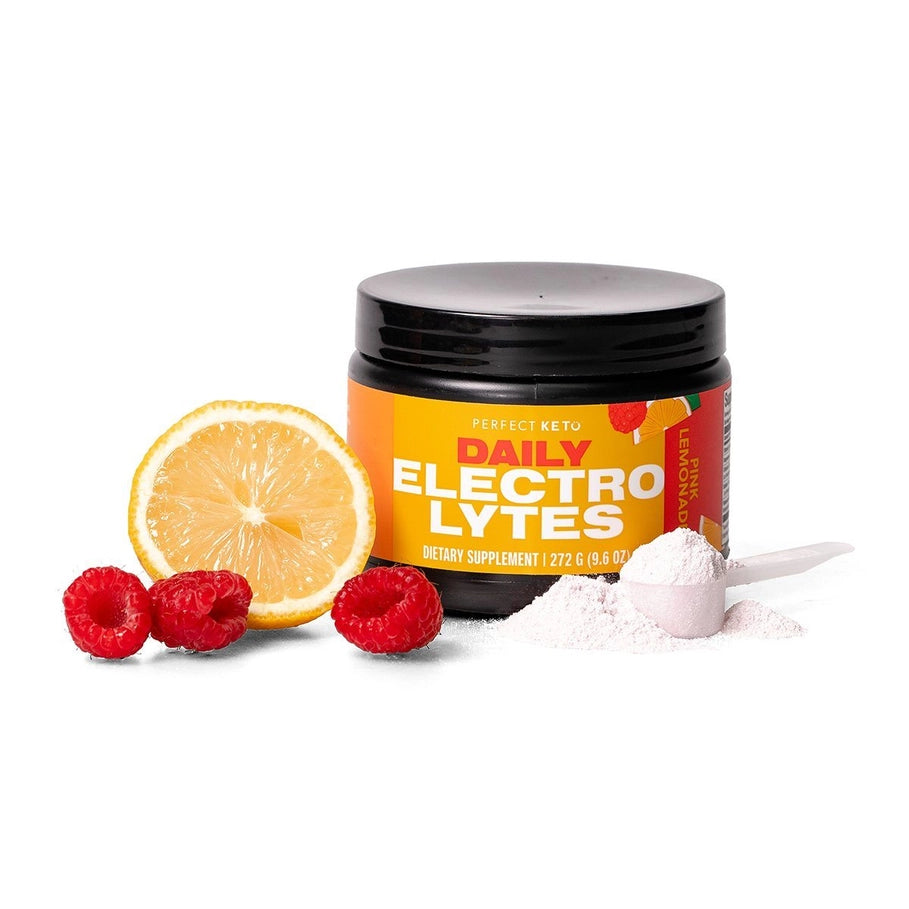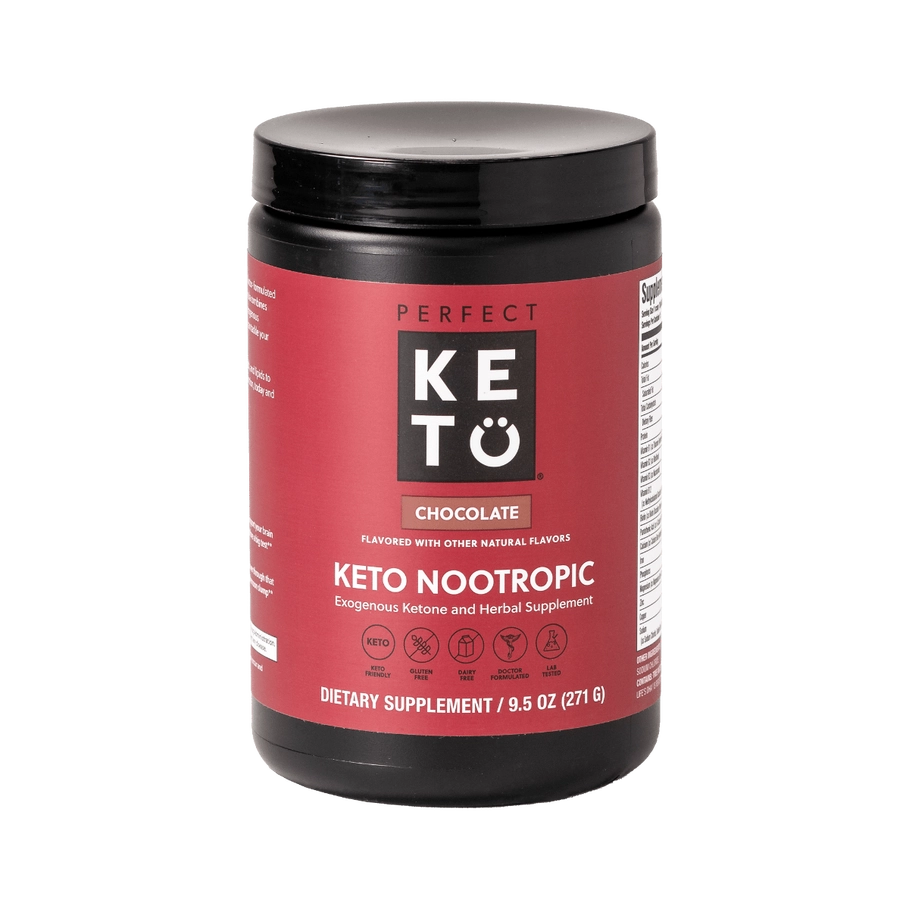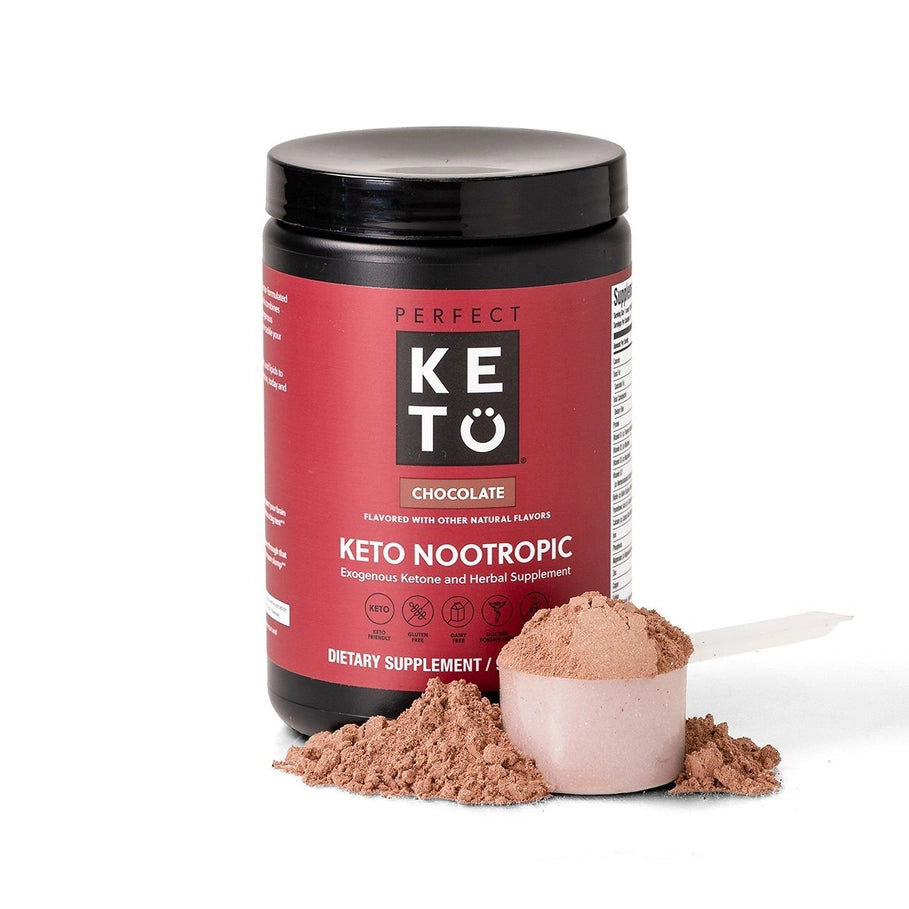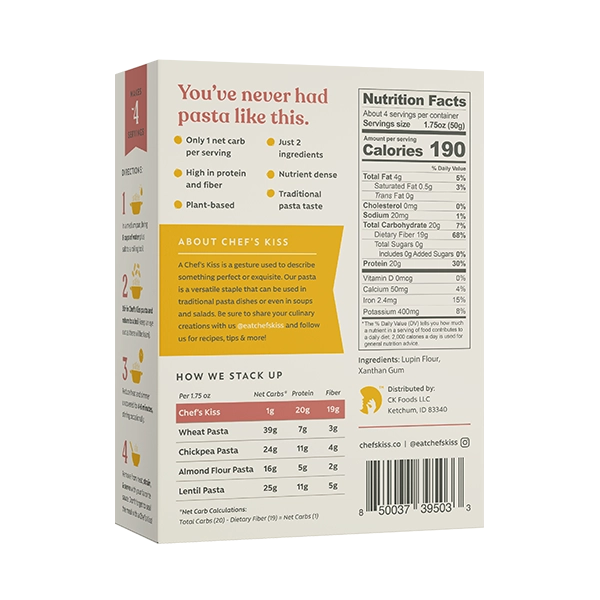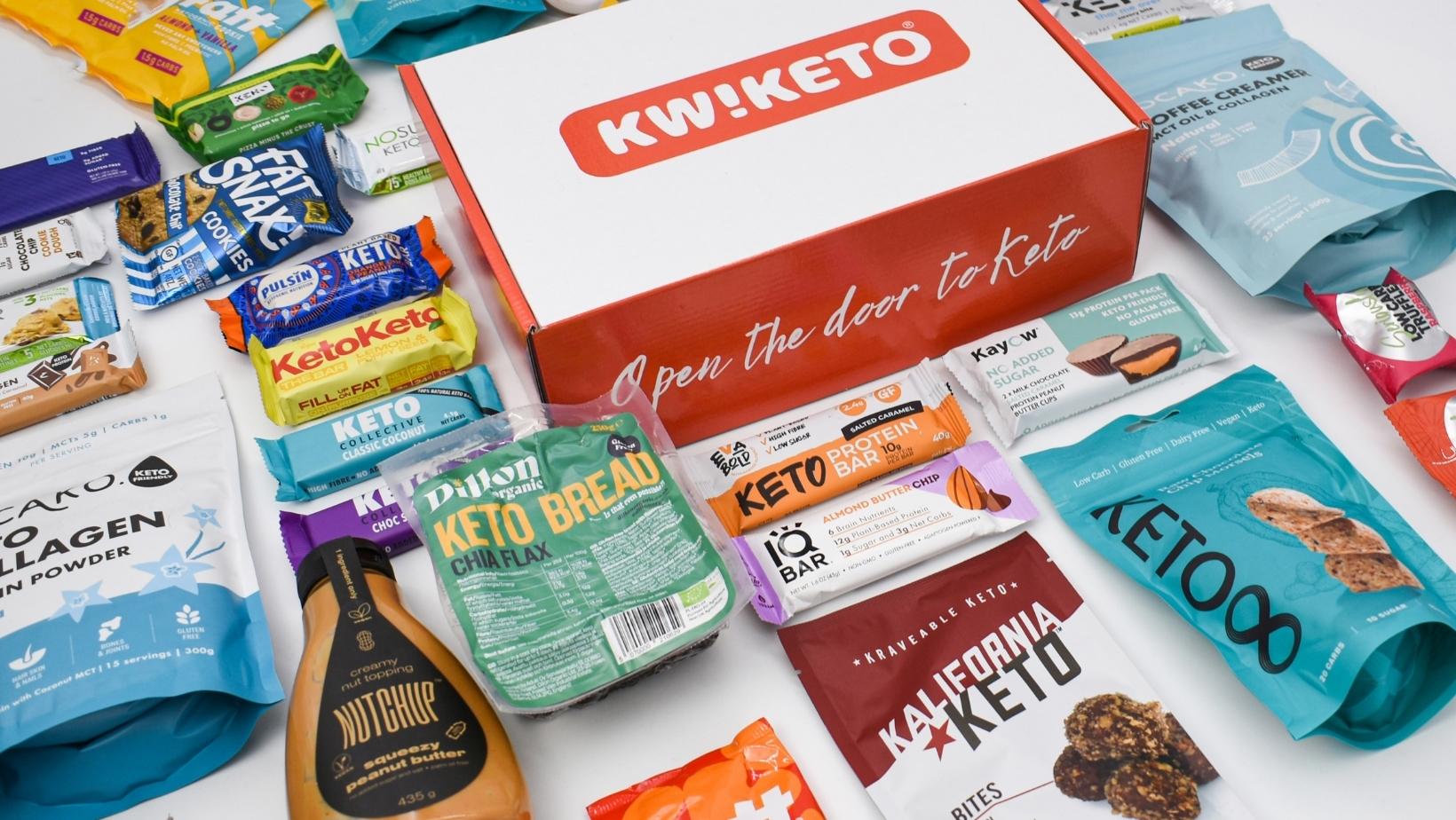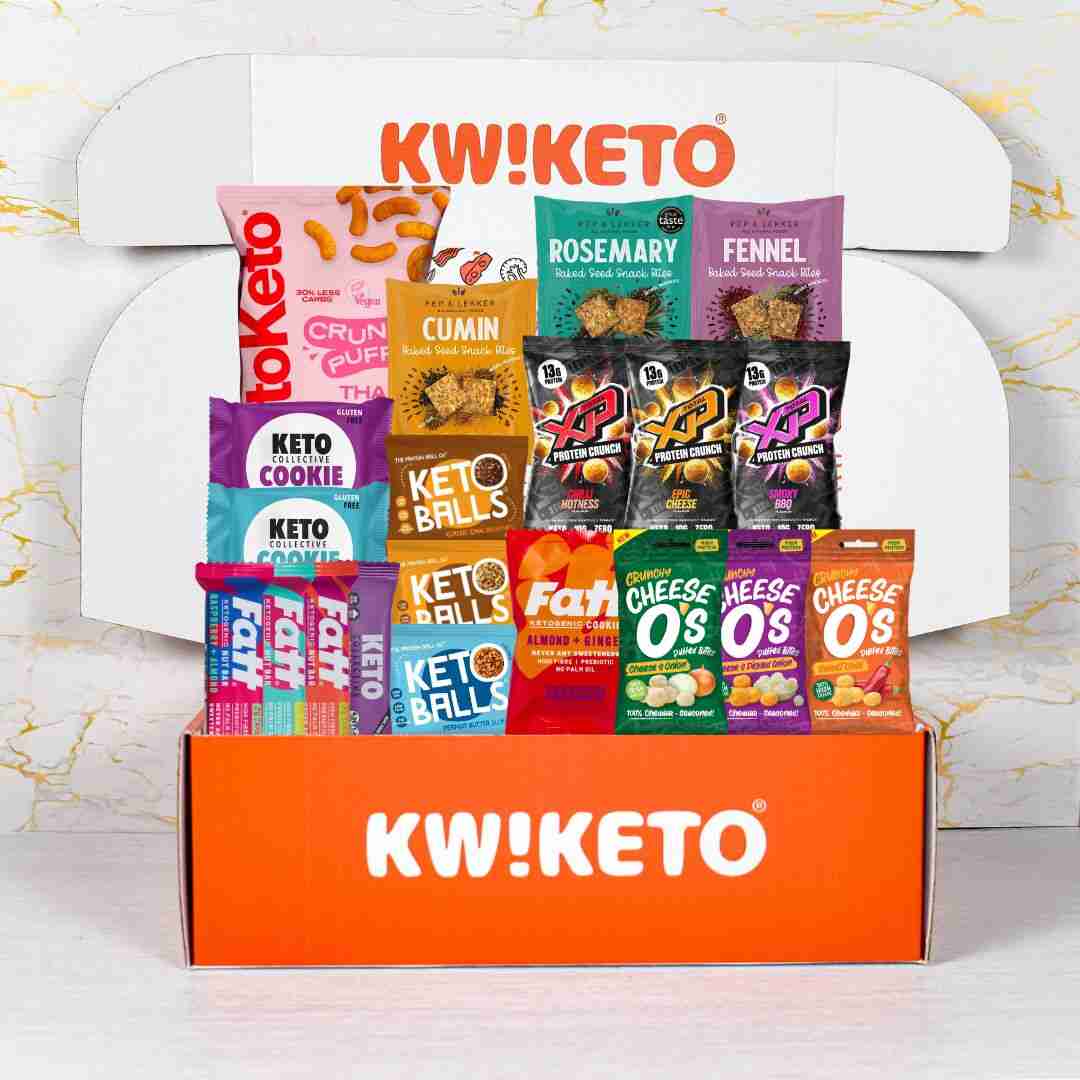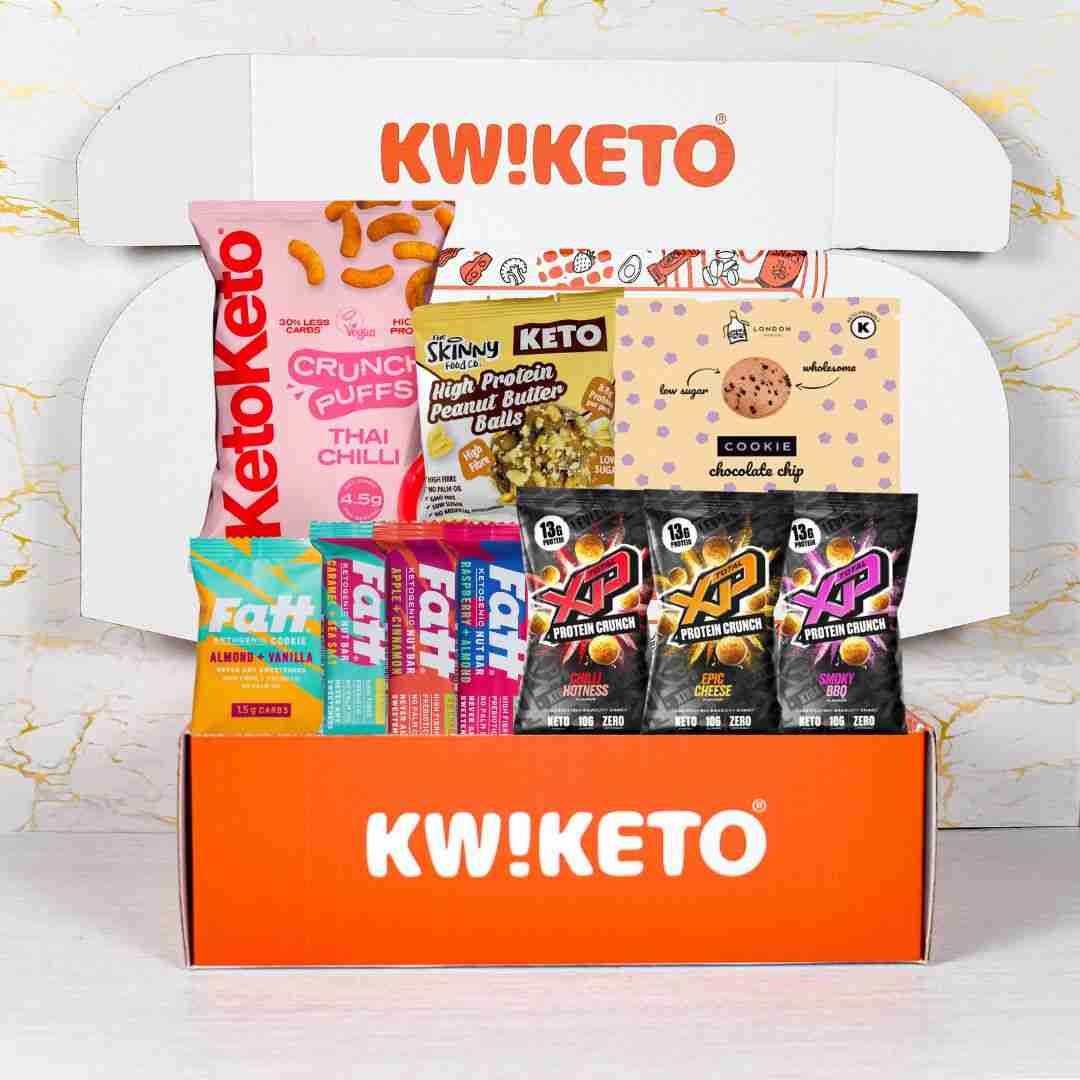
Keto Probiotics: The Key to Low-Carb Success
Why Keto Probiotics Are The Missing Link in Your Low-Carb Success
The ketogenic diet limits carbohydrates to less than 50 grams daily. This doesn't just change how we burn fat—it reshapes the scene of our gut microbiome. Half of the people see positive results on keto, but many face unexpected digestive issues that can slow their progress.
Research shows that eating more dietary fat quickly reduces microbiome diversity. This leads to common problems like nausea, diarrhea, and constipation. Keto probiotics are the foundations of maintaining digestive balance and getting optimal results on a low-carb diet.
Specific probiotic strains combined with a ketogenic approach can protect your gut microbiome. They also support your body's transition to ketosis. This piece will help you employ keto-friendly probiotics to boost your low-carb experience and avoid common digestive problems.
Understanding the Keto-Gut Connection
Recent research shows that moving to ketosis changes our gut's bacterial world. The ketogenic diet affects the balance of three major bacterial phyla: Actinobacteria, Bacteroidetes, and Firmicutes [1].
How ketosis affects gut bacteria
We noticed that beneficial bacteria struggle to survive when carbs are reduced on keto. Ketone bodies block the growth of specific bacterial strains, especially Bifidobacterium [2]. The diet also reduces the overall variety of bacteria in the gut [1].
Research points to an interesting pattern. The original switch to a ketogenic diet causes a sharp drop in bacterial diversity. But after 12 weeks, bacterial levels start to bounce back. By 23-24 weeks, they rise above where they started [1].
Common digestive issues on keto
Your body faces several digestive challenges when you switch to a high-fat, low-carb diet:
-
Fat Adaptation Symptoms: Your body needs time to make enough fat-digesting enzymes. This leads to bloating and diarrhea [3]
-
Fiber Reduction: Most adults only get 10-15g of fiber daily, nowhere near the recommended 25-38g. This often causes constipation [3]
-
Acid Reflux: Your stomach takes longer to empty with more fat intake. This can trigger heartburn and regurgitation [3]
Why traditional probiotics may not work
The ketogenic environment creates unique challenges for standard probiotics. The diet creates a gut environment that is different from typical high-fat diets [2]. Ketone bodies block certain probiotic strains, which makes many traditional supplements less effective [2].
βHB (beta-hydroxybutyrate), a main ketone body, limits how many gut bacteria can grow [4]. The keto diet's effect on gut bacteria is different from other high-fat diets. This means you need specially adapted probiotic solutions [2].
Traditional probiotics struggle because the ketogenic diet lowers both bacterial levels and diversity [5]. The diet also reduces short-chain fatty acids (SCFAs), which are vital for gut health [4].
Benefits of Keto-Friendly Probiotics
The right probiotic supplements are the life-blood of getting the most from your keto lifestyle. Research shows specific probiotic strains will boost how your body adapts to using fat as fuel, so this improves your keto trip overall.
Better fat burning and ketosis
Probiotics make a big difference in fat metabolism and weight management. Studies show certain probiotic strains help reduce body fat mass and waist size [6]. These good bacteria boost fat burning by releasing hormones that control appetite like glucagon-like peptide-1 (GLP-1) and peptide YY (PYY) [6].
These keto-friendly probiotics help with weight loss in several ways:
-
They cut down dietary fat absorption and increase fat excretion [6]
-
They make short-chain fatty acids that improve metabolic health [7]
-
They help with insulin sensitivity and glucose metabolism [7]
-
They lower inflammation tied to weight gain [6]
Better digestion and nutrient absorption
We used probiotics to help our bodies process more fat on a ketogenic diet. Research shows specific bacterial strains help recycle bile salts that break down dietary fats [7]. This gives you better absorption of fat-soluble vitamins and nutrients [8].
Studies reveal you can't absorb dietary fats well without the right gut bacteria [8]. Good bacteria will give you efficient fat breakdown, so your body maintains ketosis better [8].
Less severe keto flu symptoms
Keto probiotics help ease the uncomfortable transition when you start a ketogenic diet. Research proves probiotic supplements can help reduce common keto flu symptoms [9].
Taking probiotics before starting keto helps prepare your gut without doubt [9]. Studies suggest if you take a strong probiotic supplement one week before switching to keto and double it in the first week, you'll have fewer adaptation symptoms [9].
The benefits go beyond just feeling better. Probiotics support ongoing ketosis by keeping a healthy gut barrier and helping make butyrate. This short-chain fatty acid powers your intestinal cells [9]. Your body then establishes a more stable and efficient metabolic state, making your keto trip more sustainable and effective.
Best Keto Probiotics Foods to Include
Fermented foods are a great way to get gut health benefits while following a ketogenic diet. The fermentation process reduces food's carbohydrate content, which makes these foods more suitable for keto diets [8].
Low-carb fermented vegetables
Fermented vegetables are excellent sources of probiotics that won't break your carb bank. A ¼ cup of sauerkraut has only 1-2g of net carbs [10] and packs 4.1 grams of dietary fiber [11]. You'll also get plenty of vitamin C, vitamin K, and B vitamins from sauerkraut [11].
Kimchi, which comes from fermented cabbage, creates plenty of lactic acid and lactase [12]. A clinical study with 21 participants showed that eating kimchi regularly for eight weeks helped lower blood sugar, body weight, and insulin resistance [11].
-
Unpasteurized Sauerkraut: 1-2g net carbs per ¼ cup [10]
-
Traditional Kimchi: 2g net carbs per ¼ cup [10]
-
Fermented Pickles: 1g net carbs per spear [10]
Keto-compatible dairy options
Full-fat fermented dairy products give you both probiotics and healthy fats. We found kefir stands out as a nutritious choice when it ferments for 24 hours, which substantially reduces its lactose content [8]. Hard cheeses like cheddar have almost no carbs compared to softer ones [8].
You need to choose plain, full-fat yogurt carefully because many store brands hide sugars in their products. The best results come from yogurt that ferments for 24 hours (thermophilic cultures) or 48 hours (mesophilic cultures) [8]. This longer fermentation will give you maximum lactose reduction.
Sugar-free probiotic beverages
Water kefir works great as an alternative to dairy-based options [13]. Some kombucha varieties can fit into your keto diet if you pick brands with minimal carbs. Low-sugar kombuchas contain just 2-3g net carbs per ½ cup [10].
Probiotic sodas have become popular among people who want completely sugar-free options. These drinks contain just 0.66g of carbs per serving [3], so you can enjoy probiotics without affecting your ketosis.
Fermentation time controls how these foods fit into your diet - longer fermentation means fewer carbs [8]. This simple rule helps you add more probiotic-rich foods while staying in ketosis.
Choosing the Right Probiotic Supplements
Picking the right probiotic supplement needs a good look at specific strains and formulas that help with ketosis. Studies show you need a probiotic supplement with at least 60 billion colony-forming units (CFU) per serving. This amount delivers enough beneficial microbes to your gut [14].
Key strains for ketosis support
Several probiotic strains work great with a ketogenic lifestyle:
-
Lactobacillus acidophilus: Supports weight loss and fat burning
-
Lactobacillus plantarum: Improves nutrient absorption
-
Lactobacillus bulgaricus: Improves digestive health
-
Bifidobacterium species: Supports overall gut health [14]
These strains team up to boost fat digestion by recycling bile salts. Your body needs these salts to break down dietary fats and absorb fat-soluble vitamins [14].
Avoiding hidden carbs in supplements
Most probiotic supplements have minimal carbohydrates, but you should read labels carefully. Some products contain fillers or additives that might affect your ketosis [14]. Look for supplements in delayed-release capsules. These capsules help probiotics survive stomach acid [14].
High-quality liquid probiotic supplements are a great option if you don't like pills [14]. Just make sure any liquid formula doesn't hide sugars or carb-heavy preservatives.
Timing and dosage recommendations
The right timing makes probiotics work better. Research shows probiotics with Lactobacillus or Bifidobacterial strains work best 30 minutes before meals [1]. This timing helps protect beneficial bacteria from stomach acid [2].
Your probiotic supplement works better with foods that contain carbohydrates, fats, and proteins [5]. Stay away from acidic foods or drinks like coffee, orange juice, or tomato sauce when taking probiotics. These items can make probiotics less effective [5].
Take probiotics three to five times weekly to support bacterial growth in your gut [5]. If you take antibiotics, leave a two-hour gap between your antibiotic and probiotic doses [15].
New probiotic users should start slowly to avoid side effects. Give yourself a month to assess how well the supplement works [1]. Remember to store your probiotics exactly as the label says, and check if they need refrigeration [1].
Kombucha on Keto: What You Need to Know
Health enthusiasts love kombucha, but many wonder if it fits into a ketogenic lifestyle. The relationship between kombucha and ketosis depends on sugar content and how the fermentation works.
Carb content and ketosis effect
The brewing process starts with sweet tea and needs sugar to ferment [16]. The SCOBY (Symbiotic Culture of Bacteria and Yeast) eats this sugar and creates beneficial compounds that lower the total carbs [4]. Your brewing time and method will determine the final sugar amount.
A regular 8-ounce serving of kombucha has 2-8 grams of net carbs [17]. You'll need to watch your portions carefully. The best way to stay in ketosis is to stick to 4-ounce servings, which give you just 1-2 grams of net carbs [18].
Brewing your own keto kombucha
You'll have better control over carbs by making kombucha at home. Here are three things to watch:
-
Sugar amount: Add ¾ cup of sugar per gallon instead of the usual 1 cup [19]
-
Longer brewing: Let it ferment for 21-30 days to cut sugar by half compared to 7-14 day brews [4]
-
Right temperature: Keep it at 75-85°F to ferment properly [4]
Newcomers should start with a simple recipe and slowly increase brewing time to get the right low-carb result. Once you're comfortable with the basics, try sugar-free flavors like herbs or ginger to boost taste without adding carbs.
Commercial options to think about
You'll find several brands that make keto-friendly kombucha. These are the best low-carb options we tested:
-
Kombucha Town Original Ginger: 0g net carbs per 8 fl oz [17]
-
Humm Zero Peach Tea: 1g net carbs per 12 fl oz [17]
-
GT's Living Foods Synergy Organic Raspberry Chia: 3g net carbs per 8 fl oz [17]
Some brands also offer products made specifically for low-carb diets that use monk fruit or allulose as sweeteners [16]. Remember to check serving sizes on the bottle since many contain multiple servings [20].
Ketone test strips are a great way to see how kombucha affects your ketone levels [21]. This helps you figure out your personal tolerance and the right serving size for you.
Creating a Keto Probiotic Protocol
A successful probiotic protocol on a ketogenic diet needs careful timing and proper implementation. Research shows that big changes in eating patterns can trigger substantial digestive side effects [22]. You need a well-laid-out approach to succeed.
Starting slowly to minimize side effects
Your body needs time to adjust to probiotics. Start with 1-2 tablespoons of fermented foods daily [6]. You can increase portions as your body adapts while watching how you respond. This careful approach helps reduce common adaptation symptoms like bloating or changes in bowel movements.
Good hydration is a vital part of this phase. Studies show that drinking more water helps reduce the original digestive challenges [23]. Make sure you drink enough fluids throughout the day, especially when you add new probiotic foods or supplements.
Building up beneficial bacteria
The ketogenic diet naturally reduces certain beneficial bacteria populations, especially Bifidobacteria [24]. You can counteract this by adding prebiotic-rich, keto-compatible foods:
-
Asparagus and Jerusalem artichokes
-
Onions and leeks
-
Flaxseeds and other fiber-rich seeds
-
Garlic and mushrooms [25]
Research shows that using prebiotics with probiotics boosts the benefits of supplementation [14]. This mutually beneficial approach supports optimal bacterial growth and diversity.
Maintaining long-term gut health
Your gut health needs consistent attention to succeed long-term. Studies indicate that ketogenic diets can reduce total bacterial levels and diversity [26]. Here's how to maintain optimal gut health:
-
Keep track of your fiber intake, aiming for at least 25-38g daily [24]
-
Switch between different types of fermented foods to support bacterial diversity
-
Add enough healthy fats, especially from sources like avocados and coconut oil [27]
Research reveals that the ketogenic diet's effect on gut bacteria becomes more noticeable over time [28]. You should regularly check if your protocol works. Look for signs that your gut health needs attention, such as changes in digestion or energy levels.
You might want to add carb cycling days with extra prebiotic foods to get the best results. Studies suggest this helps maintain metabolic flexibility while supporting beneficial bacteria growth [7]. Tracking how you respond to different probiotic foods and supplements helps fine-tune your protocol over time.
Note that everyone responds differently. Some people adapt quickly to increased probiotic intake, while others need several weeks to build comfortable tolerance [6]. Your personal needs shape your long-term protocol.
Keep track of your ketone levels and digestive symptoms to ensure your probiotic protocol supports ketosis. Research indicates that proper probiotic supplementation can boost the metabolic benefits of a ketogenic diet [14]. This balanced approach works well for long-term success.
Common Mistakes to Avoid
Success with keto probiotics depends on avoiding common pitfalls that can hurt your efforts. You can create a better approach to gut health while staying in ketosis by understanding these mistakes.
Overlooking prebiotic fiber
People often focus only on probiotics and forget about prebiotic fiber, which fuels beneficial gut bacteria [29]. We needed prebiotics to promote good bacteria's health and growth in your gut, which ended up enhancing probiotic supplements' benefits [14].
Your fiber intake often drops by a lot on a ketogenic diet because you eat fewer fruits and vegetables [30]. Studies show that high-fat diets change the gut microbiome. They decrease beneficial bacteroidetes and increase firmicutes, which affects glucose and fat metabolism negatively [31].
These keto-friendly prebiotic sources help maintain gut health:
-
Asparagus and Jerusalem artichokes
-
Onions and leeks
-
Flaxseeds
-
Garlic [14]
Consuming too many fermented carbs
Most people overestimate carbohydrates in fermented foods at first. Bacteria eat sugars and starches during fermentation, which naturally reduces carbohydrates [8]. Fermentation time is a vital factor - longer fermentation leads to fewer carbohydrates [8].
You'll get the best results if you:
-
Let fermentation continue until you taste tartness
-
Remove grains after 48 hours for second fermentation
-
Ferment dairy products for 24 hours (thermophilic cultures) or 48 hours (mesophilic cultures) [8]
Hard cheeses like cheddar have almost no carbohydrates compared to softer varieties [8]. You should examine nutrition labels carefully when buying commercial fermented products because not all options fit ketogenic principles [32].
Improper supplement timing
Taking probiotic supplements at wrong times reduces their effectiveness by a lot. Studies show that probiotics face a tough experience through your digestive system. Your stomach acid might destroy beneficial bacteria before they reach your gut [5].
These steps help maximize probiotic benefits:
-
Take supplements 30 minutes before meals
-
Combine with pH-balancing foods
-
Avoid acidic beverages like coffee and tomato juice [5]
Consistency matters more than perfect timing. Taking probiotics three to five times weekly supports colonization well [5]. Of course, if you take antibiotics, keep a two-hour gap between antibiotic and probiotic doses to avoid interference [5].
Starting gradually helps minimize side effects for probiotic beginners [33]. You can refine timing and dosage by monitoring your response regularly. Note that probiotics work best with a balanced diet rich in prebiotics because they need them to survive and thrive [33].
Measuring Success with Probiotics
You need to watch several health markers to see how probiotics work with your keto experience. Blood ketone monitoring is a basic metric. Research shows the best ketone levels range between 0.5-3.0 mmol/L to get therapeutic benefits [9].
Tracking digestive improvements
Physical symptoms show if probiotics are working. Studies show that good probiotic supplements usually improve digestion within 4-6 weeks [34]. Here are the key things to watch:
-
Regular bowel movements
-
Less bloating
-
Better nutrient absorption
-
Comfortable digestion after meals
-
Reduced gas
Research shows that tracking these symptoms helps you find the right probiotic strains for your body. Studies prove that probiotics with multiple strains work better to boost overall digestive health [35].
Monitoring ketone levels
Testing ketones becomes vital when you add new probiotics to your routine. Blood tests measure beta-hydroxybutyrate, which is the main ketone your body makes during ketosis [9]. You can also use Ketostix for urine testing to measure acetoacetate levels [9].
The best way to monitor:
-
Test ketones twice daily [9]
-
Check levels before and after trying new probiotic foods
-
Write down readings with probiotic intake times
Studies show you should check blood glucose with ketones because hyperketosis can happen when blood ketone levels go above 5mmol/L [9]. This two-way monitoring helps you stay in safe and effective ketosis while your body adapts to new probiotics.
Assessing overall well-being
Probiotics do more than help digestion. Research shows people on keto diets who take the right probiotics report better mental clarity and emotional balance [36].
Watch these physical markers:
-
Daily energy levels
-
Sleep quality
-
Clear skin
-
Immune response
-
Exercise recovery
Studies show probiotics can boost short-chain fatty acids (SCFAs) production. These SCFAs are the main fuel for your gut cells [37]. Better gut health leads to improved energy levels and metabolism.
Regular checks of these markers help fine-tune your probiotic plan. Research shows keto's effect on gut bacteria grows stronger over time [37]. You might need to adjust probiotic timing or doses based on your body's response.
Blood work gives extra proof that probiotics work. Studies show the right probiotic supplements can improve various health markers [35]:
-
HbA1c levels dropped by 0.282 standardized mean difference [35]
-
Fasting plasma glucose went down by 0.175 standardized mean difference [35]
-
Insulin levels decreased by 0.273 standardized mean difference [35]
Tracking these numbers gives you a full picture of how probiotics support your keto lifestyle. Research indicates good probiotic supplements should improve multiple health markers within 8-12 weeks [34].
Monitoring becomes even more important if you have digestive issues. Studies show good probiotic supplements can restore beneficial bacteria, especially Bifidobacterium, which usually decreases on a keto diet [37].
Regular monitoring helps catch problems early. Research shows signs of hyperketosis like facial redness, panting, or nausea need quick attention and possible changes to your plan [9]. These symptoms can make it hard to stay in ketosis effectively.
The link between probiotics and ketone levels is complex. Studies show certain probiotic strains can change how your body makes and uses ketones [37]. Keeping detailed records of both probiotic intake and ketone levels helps you get the most from your supplements.
Conclusion
Keto probiotics are crucial to get the best results from a ketogenic diet. You can maintain gut health and support ketosis by choosing the right probiotic strains and fermented foods. Recent studies show that taking the right probiotics helps reduce keto flu symptoms, boosts fat burning, and lets your body absorb nutrients better.
The right timing, dosage, and food choices make keto probiotics work better. Your approach will improve if you start slow, check your ketone levels, and track how your digestion changes. People usually see major improvements in 4-6 weeks when they stick to a well-laid-out protocol.
Note that everyone responds differently to probiotics, so you need to customize your strategy. Long-term success comes from mixing prebiotic-rich foods with specific supplements and drinking enough water. The process might look complicated, but these basic principles make it easier to handle and worthwhile.
Metabolism and gut health both benefit greatly when you combine a ketogenic diet with the right probiotics. Make small changes first, stick to your plan, and adjust it based on how your body reacts. This balanced method will help you get lasting results while keeping your digestion healthy during your keto trip.
FAQs
Q1. Are probiotics beneficial on a ketogenic diet? Yes, probiotics can be highly beneficial on a ketogenic diet. They help maintain a healthy gut microbiome, support digestion of high-fat foods, and may reduce keto flu symptoms. Proper probiotic supplementation can enhance the metabolic benefits of a ketogenic diet and improve overall gut health.
Q2. How can I incorporate probiotics into my keto diet? You can incorporate probiotics into your keto diet through fermented foods like sauerkraut, kimchi, and full-fat yogurt. Additionally, you can take probiotic supplements specifically designed for keto diets. It's important to choose options low in carbs and to introduce probiotics gradually to minimize potential side effects.
Q3. What are some keto-friendly probiotic foods? Keto-friendly probiotic foods include unpasteurized sauerkraut, traditional kimchi, fermented pickles, and full-fat kefir or yogurt fermented for 24-48 hours. These options are low in carbs and rich in beneficial bacteria. Some kombucha varieties and probiotic sodas can also fit into a ketogenic diet when chosen carefully.
Q4. How long does it take to see benefits from probiotics on keto? Most people notice significant improvements in digestive health within 4-6 weeks of consistent probiotic use on a ketogenic diet. However, individual responses may vary. It's important to monitor your progress and adjust your probiotic protocol as needed. Some benefits, like improved energy levels and mental clarity, may be noticeable sooner.
Q5. Can probiotics help with keto flu symptoms? Yes, probiotics can help alleviate keto flu symptoms. Taking a strong probiotic supplement one week before transitioning to keto, then doubling the intake during the first week, can significantly reduce adaptation symptoms. Probiotics support the gut during the dietary change and may help minimize discomfort as your body adjusts to using fat for fuel.
References
[1] - everydayhealth.com
[2] - balanceone.com
[3] - kwiketo.com
[4] - kombuchakamp.com
[5] - health.clevelandclinic.org
[6] - thelowcarbgrocery.com
[7] - biotiquest.com
[8] - culturesforhealth.com
[9] - cuh.nhs.uk
[10] - thelowcarbgrocery.com
[11] - teamketo.com
[12] - teamketo.com
[13] - biotiquest.com
[14] - drberg.com
[15] - eatingwell.com
[16] - ketogenic.com
[17] - sureketo.com
[18] - everydayhealth.com
[19] - everythingkombucha.com
[20] - perfectketo.com
[21] - buchabrewers.com
[22] - health.com
[23] - medicalnewstoday.com
[24] - bath.ac.uk
[25] - sfihealth.com
[26] - zoe.com
[27] - healthline.com
[28] - pmc.ncbi.nlm.nih.gov
[29] - pmc.ncbi.nlm.nih.gov
[30] - optibacprobiotics.com
[31] - wildbrine.com
[32] - drberg.com
[33] - balanceone.com
[34] - pmc.ncbi.nlm.nih.gov
[35] - sciencedirect.com
[36] - sciencedirect.com
[37] - pmc.ncbi.nlm.nih.gov

